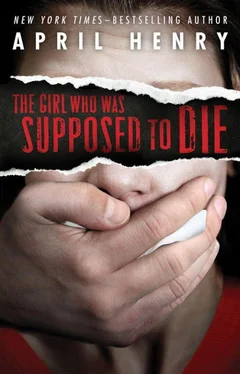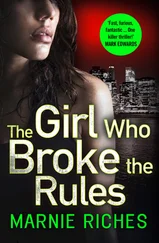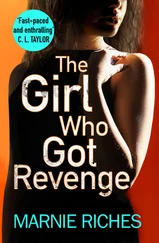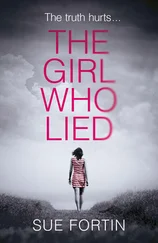And that daughter was me. Is me. If I can find them, they can tell me who I am. Maybe help slide my memories back into place, like putting a DVD in a player.
The road I’m on meets up with another one. Because the other road looks bigger, I turn onto it. I choose left and hope it’s the right way.
I think of something else. Who would frame a photo like the one in my pocket and put it on their mantel? It’s not exactly a piece of art, just an off-center snapshot. The only people who would put it on display have to be the people in the picture, or someone related to them. So was that my family’s cabin? My grandparents’? It seems likely.
But then shouldn’t I have recognized it? Nothing was familiar.
There’s something else. If that girl in the photo is me, then where’s my family? Are they in trouble, too?
Are they dead?
The whole time I’m thinking, I’m driving. Twice when I have to make a choice about what road to take, I pick the road that looks wider or has more cars. And each time, I look behind me to see if someone else is making the same decisions. But both times the road is clear. Every time I see a car come toward me, something jumps in my chest. Fear and longing. I want to be saved, but I’m so afraid. The wrong choice could kill me.
After I’ve been driving for about a half hour, the road I’m on is now some kind of highway. Cars pass me every two or three minutes. So I guess I’ve been making the right decisions.
But all the cars just make me more nervous. I keep looking in my rearview mirror, wondering if someone is following me.
That’s what almost gets me in an accident. When a car in front of me turns left, I don’t see the blinking yellow turn signal or the red flare of the brake lights until it’s almost too late. I slam on my own brakes but I can feel that it’s not going to be enough.
I yank the car to the right, a horn blaring behind me, and just manage to squeeze past.
There’s a little grocery store up ahead, but it’s dark and closed. Still, I pull into the parking lot. I’m shaking so hard I can barely turn the key.
The sound of my ragged breathing fills the space. “Calm down,” I say out loud. “You’re safe.” But I don’t feel safe. Who can I turn to? Who can I trust? Every few seconds, another car rushes by, but they are filled with strangers who wouldn’t have any more idea than I do about how to help me.
Then I remember something about that guy’s phone. It looked like it connected to the Internet. I take it out and swipe my finger over the screen. It lights up. I have to scroll around a little, but then I find the browser, click on it, then type in googlemaps.com to see where I am.
I have to zoom out a few times to figure out what state I’m in. Oregon. Does that sound right? Is that where I live? I ask myself questions, but nothing comes back.
According to Google, I’m roughly in the middle of the state, which is basically shaped like a square. The closest dot on the map is called Newberry Ranch. And when I try typing in Newberry Ranch and police , I get this: “Located just inside the entrance of Oregon’s Newberry Ranch, our Security Department provides protection and community support to our residents and guests 24/7.” Newberry Ranch sounds like it must be some sort of resort, but it’s only two miles away. And protection and support are two of the things I need.
I wait until there aren’t any cars coming, and then I put on my signal and get back on the highway. In another minute, I see the wooden sign for Newberry Ranch. Above the words is a stylized picture of a sun. Definitely a resort, I think as I drive through a darkened golf course on a road that winds back and forth for no reason that I can see. Even though the road is empty, it feels busy, with signs warning about the five-mile-an-hour speed limit and bright yellow speed bumps to make sure you don’t ignore the signs. Past the golf course are houses that look like cabins on steroids.
If it weren’t for the word SECURITY on the side of the building and the black cop car sitting in front, I never would think this was a police station. It looks like a cheaper prefab cabin.
I’ve been watching my rearview mirror, so I know no one followed me here. But even so, the space between my shoulder blades itches. Just to be safe, I tuck the gun in the back of my waistband again like some kind of wannabe gangster. Then I get out of the SUV and run for the door.
DAY 1, 6:27 P.M.
When I burst through the door, a middle-aged man wearing a uniform is sitting behind a desk reading People magazine. His name tag says OFFICER DILLOW.
“You’ve got to help me. Someone’s trying to kill me.” A sob pushes up from my belly as I stagger toward him. I put my hand over my mouth but it still leaks out.
“What?” He puts his coffee down so fast it slops on the magazine. He bounces to his feet, his hand on the butt of his gun. His eyes scan the flat black glass of the windows behind me. “Is he out there?”
“No, I don’t think so.” My voice gets higher as I think about how horrible it would be if one of those men was. “I don’t think I was followed.”
His hand doesn’t move from his gun, but he looks back at me now. “Followed? From your unit?”
He must think I’m one of the guests. “No. You don’t understand.” My words come faster and faster. “I was at a cabin. Someplace back there.” I wave my hand behind me, not even sure anymore that I’m pointing in the right direction. “Up in the mountain. About ninety minutes ago, I… I… I”—I stutter as the horror washes over me again—“I came to. From being unconscious. I was lying on a floor and two men were standing over me. And one of them said that I didn’t know anything and told the other one to take me out back and… and”—it’s hard to repeat this, to repeat how someone gave the order to murder me—“and finish me off. And then he left and the second guy dragged me out to the woods to kill me.” Tears are running down my face and into my mouth.
With every word, Officer Dillow’s eyes get wider. “Now slow down, honey, slow down. Here, why don’t you sit down.” He motions at the chair in front of his desk.
But I can’t slow down and I can’t sit down. “Look what they did to me.” I hold out my bandaged hand, which shakes so hard there’s no way he can focus on it. “They pulled out my fingernails.”
His face pales. “Really?” His brows draw together. “What’s your name? Where’s your family?”
I swipe my nose, try to get myself under control. “That’s the thing. I don’t know. Those guys must have hit me on the head or something. I don’t remember anything from before I woke up on the floor of that cabin.”
“You said one of the men left? What happened to the other one?”
I think of all the things I did, then simplify it to: “When we were out in the woods, I pushed him and he fell and hit his head on a rock. Then I tied him up with his own belt.” I remember the gasping sounds he was making, the sounds that weren’t really breathing, and push the memory away.
“Okay, so let me get this straight,” Officer Dillow says slowly. “You don’t know who you are, you don’t know where you were before you came here, and all you know is that two men are trying to kill you.”
Put that way, it sounds kind of crazy. “Yes. That’s right.”
“Let me ask you something.” He presses his lips together and tilts his head to one side. His coffee-colored eyes bore into me. “Have you had any alcohol or drugs today?”
“What? No. You can give me a Breathalyzer test or whatever it is you do. I’m not drunk or anything.” Even as I say the words, I wonder if they’re true. Maybe they did give me drugs. Maybe that’s why I can’t remember.
Читать дальше












